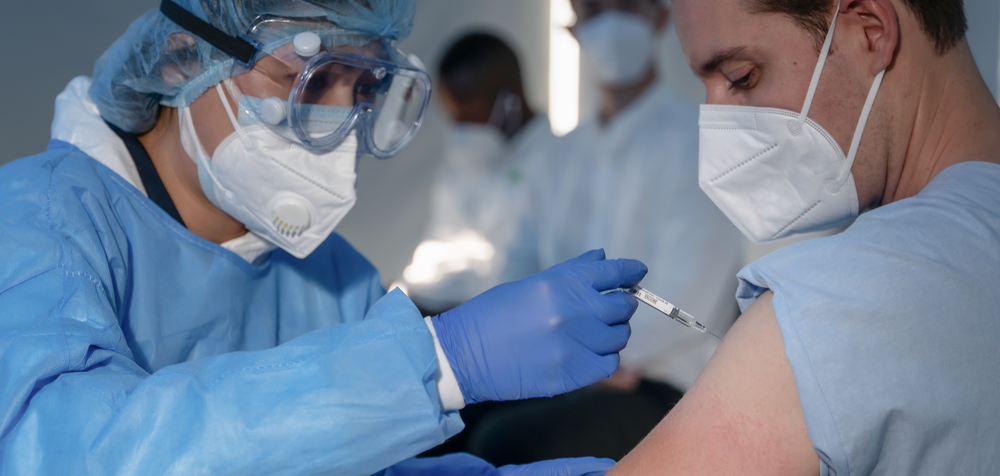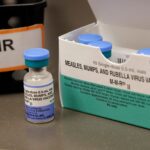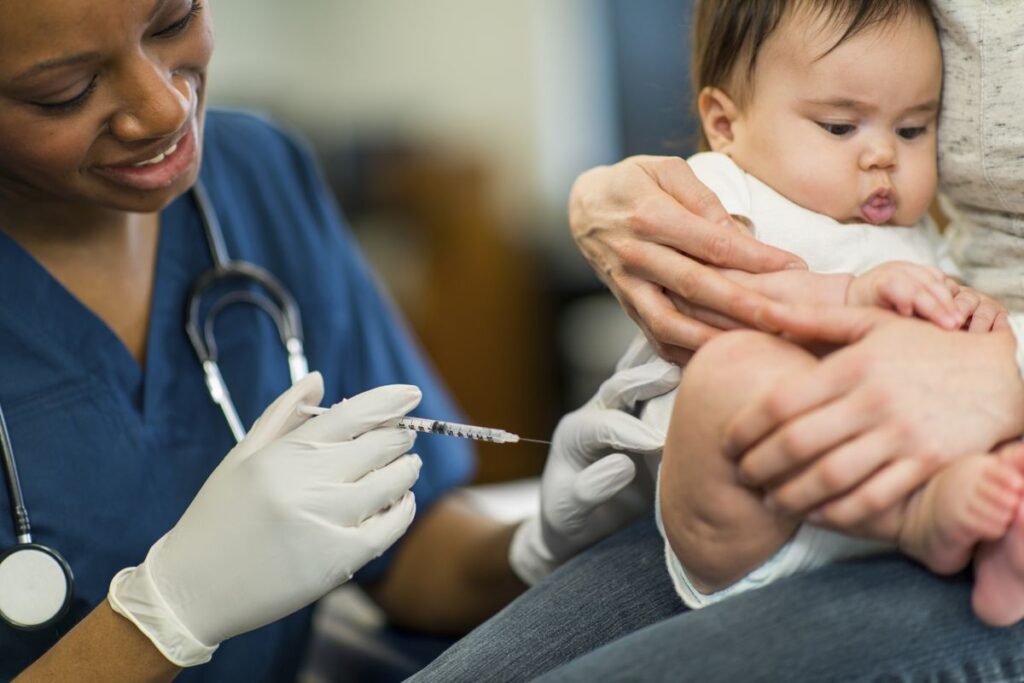In the world of modern medicine and laboratory science, professionals are constantly exposed to biological agents that can pose serious health risks. From infectious diseases to accidental exposure to pathogens, the workplace environment in healthcare and laboratories demands a higher level of protection. Among the most effective measures available, vaccination remains a cornerstone of safety.
At Local MD, we emphasize the importance of preventive healthcare—not just for patients but also for the professionals who dedicate their lives to healing others. Vaccination plays a vital role in ensuring both personal safety and public health security, making it indispensable for healthcare and laboratory workers.
Understanding the Importance of Vaccination in Healthcare Settings
Healthcare and laboratory personnel routinely interact with infectious materials, bodily fluids, and contaminated surfaces. The potential for accidental exposure to viruses and bacteria—such as Hepatitis B, Influenza, Measles, Mumps, Rubella, COVID-19, and Tuberculosis—is significant.
Vaccinations act as a biological shield, equipping the immune system to recognize and fight pathogens efficiently. When healthcare and lab workers are immunized, they protect not only themselves but also their patients, coworkers, and the wider community.
Breaking the Chain of Transmission
In hospitals, clinics, and laboratories, infections can spread rapidly. Vaccinated individuals serve as barriers in the chain of transmission. By preventing infection at its source, vaccination helps reduce outbreak potential and protect vulnerable populations, such as newborns, the elderly, and immunocompromised patients.
Ensuring Workplace Safety and Compliance
Most healthcare institutions are governed by Occupational Safety and Health Administration (OSHA) and Centers for Disease Control and Prevention (CDC) regulations. These bodies recommend or mandate certain vaccinations for staff to minimize occupational hazards. Compliance not only safeguards employees but also ensures that the organization meets legal and ethical obligations.
Protecting Patient Health
Healthcare professionals work directly with patients who may already have weakened immune systems. A single case of preventable illness among staff could lead to nosocomial (hospital-acquired) infections, endangering patient lives. By staying vaccinated, healthcare workers help maintain sterile and safe clinical environments.
Essential Vaccines for Healthcare and Laboratory Workers
To minimize the risk of workplace-related infections, several vaccines are strongly recommended—or required—for healthcare and lab professionals. Each vaccine targets specific pathogens that are commonly encountered in these environments.
Hepatitis B Vaccine
Hepatitis B virus (HBV) is transmitted through blood and bodily fluids, posing a major risk for healthcare workers. The Hepatitis B vaccine is one of the most crucial immunizations for anyone exposed to sharps, blood samples, or patients’ fluids. The vaccine provides over 90% effectiveness and long-term immunity, protecting against chronic liver disease and cancer.
Influenza (Flu) Vaccine
Seasonal flu viruses can easily spread in healthcare facilities, leading to absenteeism and patient infections. Annual influenza vaccination ensures that healthcare staff remain protected against the most prevalent viral strains, minimizing disruption during flu season.
Measles, Mumps, and Rubella (MMR) Vaccine
The MMR vaccine guards against three highly contagious viral infections that can cause severe complications. Healthcare professionals who were not vaccinated in childhood or lack proof of immunity must receive the MMR vaccine. This is vital for preventing outbreaks in hospitals and labs where exposure risk is high.
Varicella (Chickenpox) Vaccine
Laboratory and hospital workers without immunity to varicella-zoster virus should be vaccinated to prevent chickenpox, which can be serious in adults and easily transmitted in clinical environments.
Tetanus, Diphtheria, and Pertussis (Tdap) Vaccine
The Tdap vaccine provides essential protection against tetanus (lockjaw), diphtheria, and pertussis (whooping cough). Healthcare workers who handle wounds, surgical instruments, or patient care must stay current with Tdap boosters every 10 years.
COVID-19 Vaccine
Since the pandemic, COVID-19 vaccination has become mandatory for healthcare workers in many regions. It protects against severe illness and helps maintain uninterrupted healthcare services during outbreaks. Booster doses ensure ongoing protection as new variants emerge.
Meningococcal and Hepatitis A Vaccines
Laboratory personnel who handle Neisseria meningitidis or Hepatitis A virus should receive targeted vaccines. These pathogens pose serious occupational risks in microbiological and research settings.
The Role of Vaccination in Laboratory Environments
Laboratories—particularly those dealing with biological samples, viruses, and bacteria—present unique challenges. Unlike healthcare settings where exposure is often through patient contact, lab environments pose risk through specimen handling, aerosols, or accidental needle sticks.
Protection Against Lab-Acquired Infections
Lab-acquired infections (LAIs) have been documented with agents such as Brucella, Salmonella, Mycobacterium tuberculosis, and Influenza viruses. Vaccination provides a critical layer of protection, especially when combined with biosafety protocols and proper personal protective equipment (PPE).
Complementing Biosafety Measures
While biosafety cabinets, gloves, and masks reduce exposure risks, they cannot completely eliminate the chance of infection. Vaccinations work as a secondary defense mechanism, ensuring immune preparedness in case of accidental exposure.
Maintaining Research Continuity
In research institutions, even a minor infection can disrupt critical experiments, lead to facility shutdowns, and delay findings. A vaccinated workforce helps maintain operational continuity and protects valuable scientific data.
Ethical and Professional Responsibility of Healthcare Workers
Healthcare professionals hold a moral duty to protect patients from harm. Staying up to date with vaccinations reflects a commitment to medical ethics, public trust, and patient safety.
Unvaccinated staff can unknowingly become carriers of infectious agents, compromising vulnerable patients. In contrast, vaccination represents a proactive stance—showing respect for both personal health and community welfare.
The Duty of Care
Every healthcare worker, from nurses to technicians, shares the responsibility to prevent disease spread. Vaccination fulfills this ethical duty by minimizing preventable infections and safeguarding clinical environments.
Building Public Confidence
Patients expect their caregivers to follow best medical practices. A fully vaccinated workforce reassures patients that the institution prioritizes safety, fostering confidence and satisfaction.
Employer Responsibilities and Workplace Vaccination Programs
Organizations play a pivotal role in promoting vaccination compliance. Proactive healthcare employers often implement workplace immunization programs to ensure every team member is protected.
Onsite Immunization Clinics
Offering convenient, free, or subsidized vaccination programs encourages higher participation rates. Onsite flu shot drives and hepatitis B campaigns can significantly improve immunization coverage among staff.
Regular Immunization Records and Tracking
Maintaining accurate vaccination records allows institutions to monitor compliance and identify workers due for boosters. Electronic tracking systems simplify this process and ensure regulatory compliance.
Education and Awareness Initiatives
Healthcare employers should actively educate staff about the importance of immunization, the diseases prevented, and potential occupational risks. Awareness leads to informed decision-making and long-term compliance.
Overcoming Vaccine Hesitancy Among Healthcare Workers
Despite strong evidence supporting vaccination, some professionals remain hesitant due to misinformation or fear of side effects. Overcoming this challenge requires transparent communication and education.
-
Addressing Concerns: Provide evidence-based explanations about vaccine safety, development, and efficacy.
-
Sharing Success Stories: Highlight real-world examples where vaccination prevented outbreaks.
-
Promoting Leadership Advocacy: Senior doctors and administrators who get vaccinated set powerful examples for their teams.
-
Clarifying Legal and Ethical Expectations: Remind staff that vaccination is part of professional duty and institutional policy.
By creating an open dialogue, organizations can build trust and foster a culture of preventive care.
Global Health Implications of Vaccinated Healthcare Workers
Healthcare professionals form the first line of defense against infectious disease outbreaks. Their immunity contributes to herd protection, reducing the overall spread of disease within healthcare systems and the community.
In pandemic situations like COVID-19, frontline immunity helped reduce mortality rates and maintain healthcare capacity. Similarly, immunized lab workers contribute to safer research practices that advance scientific knowledge while preventing global biohazards.
Future of Workplace Immunization: Beyond Traditional Vaccines
As biotechnology advances, new vaccines continue to emerge against previously untreatable diseases. For healthcare and laboratory workers, this evolution offers even greater protection.
mRNA and Vector-Based Vaccines
Innovations like mRNA technology (as seen in COVID-19 vaccines) enable rapid development of customized immunizations for occupational pathogens.
Combination and Long-Lasting Vaccines
Future formulations aim to combine multiple protections into single doses, reducing the need for frequent boosters.
Digital Health Integration
Electronic health systems and wearable devices may soon track immunization status in real-time, ensuring healthcare workers remain compliant and protected.
Conclusion: A Safer Future Through Vaccination
For those working in healthcare and laboratory environments, vaccination is not optional—it’s essential. It protects workers from life-threatening diseases, prevents outbreaks in clinical settings, and reinforces public trust in medical institutions.
At Local MD, we champion preventive health and occupational safety. By staying vaccinated, healthcare and lab professionals honor their commitment to patient welfare and contribute to a healthier, safer world for everyone.






